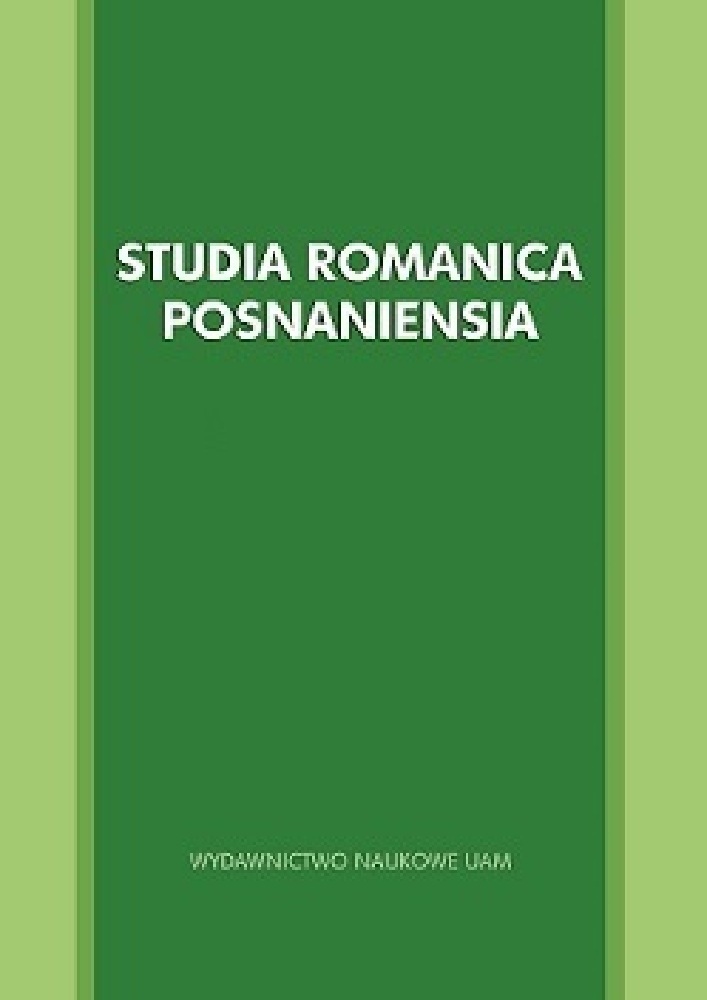Abstrakt
The German invasion and occupation of Belgium in 1914-1918 deeply impacted the Belgian literary field. In many regards, the country’s political and linguistic evolution was also impacted by the war, although it cannot be reduced to its consequences. The imaginary that impregnated the first attempts of building a francophone literature in Belgium flickered due to the collapse of the Germanic myth that inspired the whole 19th Century. What may be called a “Latin shift”, which began with Maurice Maeterlinck, lead to a renewed subjugation to the French doxa, culminating with the Manifeste du lundi [Monday’s Manifesto]. Nevertheless, after the war and the Russian Revolution, the collapse of traditional values gives birth, on the one hand, to masterpieces by surrealist Paul Nougé, expressionist playwright Fernand Crommelynck or avant-gardist poet Henry Michaux. In all these masterpieces, it’s the nature of language itself that is questioned. For instance, Michaux’s “Lettre de Belgique” [“Letter from Belgium”] shows how the writer works with his Belgian roots in order to paradoxically keep them at bay. On the other hand, the “Fantastique réel” [“Fantastic Real”] tries to keep the language unspoiled by holding on to the Symbolist idealism and acknowledging the wounds of war at the same time, through sudden shifts from Realism to the Uncanny. There are traces of the conflict in literary texts, which were though forgotten by Literary History because of their realistic facture, despite their great efficiency without pathos.
Bibliografia
.
Licencja
- Autor oświadcza, że przysługują mu osobiste i majątkowe prawa autorskie do Utworu oraz że nie są one ograniczone w zakresie objętym niniejszą Umową, oraz że utwór jest dziełem oryginalnym i nie narusza majątkowych lub osobistych praw autorskich innych osób.
- Autor udziela Uniwersytetowi im. Adama Mickiewicza w Poznaniu niewyłącznej i nieodpłatnej licencji na korzystanie z Utworu bez ograniczeń terytorialnych i przez czas nieokreślony na następujących polach eksploatacji:
2.1. wytwarzanie określoną techniką egzemplarzy Utworu, w tym techniką drukarską, reprograficzną, zapisu magnetycznego oraz techniką cyfrową;
2.2. wprowadzanie do obrotu, użyczenie lub najem oryginału albo egzemplarzy Utworu;
2.3. publiczne wykonanie, wystawienie, wyświetlenie, odtworzenie oraz nadawanie i reemitowanie, a także publiczne udostępnianie Utworu w taki sposób, aby każdy mógł mieć do niego dostęp w miejscu i w czasie przez siebie wybranym;
2.4. włączenie Utworu w skład utworu zbiorowego;
2.5. wprowadzanie Utworu w postacie elektronicznej na platformy elektroniczne lub inne wprowadzanie Utworu w postaci elektronicznej do Internetu, Intranetu, Extranetu lub innej sieci;
2.6. rozpowszechnianie Utworu w postaci elektronicznej w Internecie, Intranecie, Extranetu lub innej sieci, w pracy zbiorowej jak również samodzielnie;
2.7. udostępnianie Utworu w wersji elektronicznej w taki sposób, by każdy mógł mieć do niego dostęp w miejscu i w czasie przez siebie wybranym, w szczególności za pośrednictwem Internetu, Intranetu, Extranetu lin innej sieci;
2.8. udostępnianie Utworu zgodnie z wzorcem licencji Attribution-NonCommercial-ShareAlike 4.0 International (CC BY-NC-SA 4.0) lub innej wersji językowej tej licencji lub którejkolwiek późniejszej wersji tej licencji, opublikowanej przez organizację Creative Commons. - Autor zezwala Uniwersytetowi im. Adama Mickiewicza w Poznaniu na:
3.1. nieodpłatne korzystanie i rozporządzanie prawami do opracowań Utworu i tymi opracowaniami.
3.2. wysyłanie metadanych Utworu oraz Utworu do komercyjnych i niekomercyjnych baz danych indeksujących czasopisma. - Autor upoważnia i zobowiązuje Uniwersytet im. Adama Mickiewicza w Poznaniu do udzielania osobom trzecim dalszych licencji (sublicencji) do Utworu oraz do innych materiałów, w tym utworów zależnych lub opracowań zawierających lub powstałych w oparciu o Utwór, przy czym postanowienia takich sublicencji będą tożsame z wzorcem licencji Attribution-NonCommercial-ShareAlike 4.0 International (CC BY-NC-SA 4.0) lub innej wersji językowej tej licencji lub którejkolwiek późniejszej wersji tej licencji, opublikowanej przez organizację Creative Commons Tym samym uprawnia wszystkich zainteresowanych do korzystania z utworu wyłącznie w celach niekomercyjnych pod następującymi warunkami:
4.1. uznanie autorstwa czyli obowiązek podania wraz z rozpowszechnionym utworem informacji, o autorstwie tytule, źródle (odnośniki do oryginalnego utworu, doi) oraz samej licencji;
4.2. na tych samych warunkach, wolno rozpowszechniać utwory zależne jedynie na licencji identycznej to tej, na jakiej udostępniono utwór oryginalny. - Uniwersytet im. Adama Mickiewicza w Poznaniu jest zobowiązany do:
5.1. udostępniania Utworu w taki sposób, aby każdy mógł mieć do niego dostęp w miejscu i w czasie przez siebie wybranym bez ograniczeń technicznych;
5.2. poprawnego informowania osób, którym Utwór będzie udostępniany o udzielonych im sublicencjach w sposób umożliwiający odbiorcom zapoznanie się z nimi.
Pozostałe postanowienia
- Uniwersytet im. Adama Mickiewicza w Poznaniu zachowuje prawo do czasopisma jako całości (układ, forma graficzna, tytuł, projekt okładki, logo itp.).
